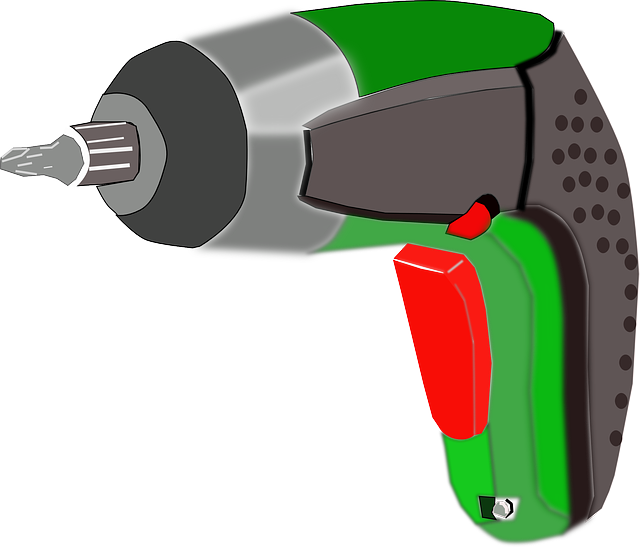Older homes with fuse boxes should consider upgrading to modern circuit breakers for enhanced safety and convenience. Circuit breakers offer better protection against overcurrent, trip at specific levels, and are easier to install and replace than fuses. A qualified electrician can guide the replacement process, ensuring a secure transition. Choosing the right circuit breaker size and type is crucial for home safety and electrical system efficiency, with options based on amperage ratings and device types.
Looking to upgrade your home’s electrical safety? It’s time to consider replacing old fuses with modern circuit breakers. This simple switch can significantly enhance your electrical system’s reliability and protection. In this comprehensive guide, we’ll explore the limitations of traditional fuses, the numerous benefits of advanced circuit breakers, and provide step-by-step instructions for a DIY replacement (with expert electrician tips). Learn how to choose the perfect circuit breaker for your home’s unique needs.
- Understanding Old Fuses and Their Limitations
- Advantages of Modern Circuit Breakers
- Steps to Replace Fuses with Circuit Breakers
- Choosing the Right Circuit Breaker for Your Home
Understanding Old Fuses and Their Limitations

Many older homes and buildings still rely on fuse boxes as their primary electrical protection, but these traditional fuses have distinct limitations that modern circuit breakers surpass. Fuses are designed to protect circuits by interrupting the flow of electricity when an overload or short circuit is detected. However, they have a few drawbacks; for instance, they can only handle so much current before blowing, and replacing them requires shutting off the entire circuit, which isn’t always convenient or safe. Moreover, fuses don’t offer the same level of protection against overcurrent as circuit breakers do, leaving homes and businesses vulnerable to potential electrical hazards.
An electrician will often recommend upgrading from fuseboxes to modern circuit breakers due to their enhanced safety features and convenience. Circuit breakers can interrupt the current much faster than fuses and are designed to trip at specific current levels, ensuring better protection for your wiring and appliances. This upgrade not only provides peace of mind but also allows for easier troubleshooting and repair when issues arise.
Advantages of Modern Circuit Breakers

Modern circuit breakers offer several advantages over traditional fuses, making them a preferred choice for many electricians and homeowners alike. One of the key benefits is their advanced safety features. Circuit breakers are designed to interrupt the electrical flow in case of an overload or short circuit, preventing potential fires and other hazards. This automatic shut-off mechanism is a significant upgrade from fuses, which require manual replacement once they blow.
Additionally, circuit breakers are more versatile and easier to install and replace. They come in various amp ratings, allowing electricians to customize them according to the specific needs of each circuit. Unlike fuses that need to be specifically matched to a circuit’s requirements, circuit breakers offer adaptability. This flexibility ensures that your electrical system is protected without the hassle of frequent replacement, making them a more cost-effective and convenient solution for both residential and commercial settings.
Steps to Replace Fuses with Circuit Breakers

Replacing old fuses with modern circuit breakers is a straightforward process that any qualified electrician can perform. Here are the steps to ensure a safe and effective transition:
1. Safety First: Turn off the power at the main electrical panel before beginning work. This crucial step prevents accidents and ensures your safety during the replacement. Use a voltage tester to confirm the power is off before proceeding.
2. Access Fuses: Locate the old fuses in the panel. These are typically small, plastic components with a screw or clip mechanism. Remove them carefully using the appropriate tool, taking note of their orientation for future reference.
Choosing the Right Circuit Breaker for Your Home

When replacing old fuses with modern circuit breakers, choosing the right one is essential for your home’s electrical safety and system efficiency. An electrician can help identify the appropriate size and type based on your home’s wiring and current demands. Circuit breakers come in various amperage ratings, ranging from 15 to 200 amps, and different types like standard, dual-pole, or GFCI (Ground Fault Circuit Interrupter).
The right circuit breaker protects against overloading and short circuits by interrupting the electrical flow at a predetermined level. For instance, a 15A breaker is suitable for low-power devices, while higher amperage breakers are required for major appliances or air conditioning units. An electrician can assess your home’s layout, existing wiring, and appliance usage to ensure you install circuit breakers that align with these factors, enhancing the overall safety of your electrical system.
Upgrading from old fuses to modern circuit breakers is a smart move for any homeowner. This simple switch offers enhanced safety, convenience, and protection against overloads. By following the steps outlined in this article and choosing the right circuit breaker, you can ensure your home’s electrical system is up-to-date and reliable. Remember, an electrician is always on hand to assist with these types of upgrades, ensuring a smooth and safe transition.
